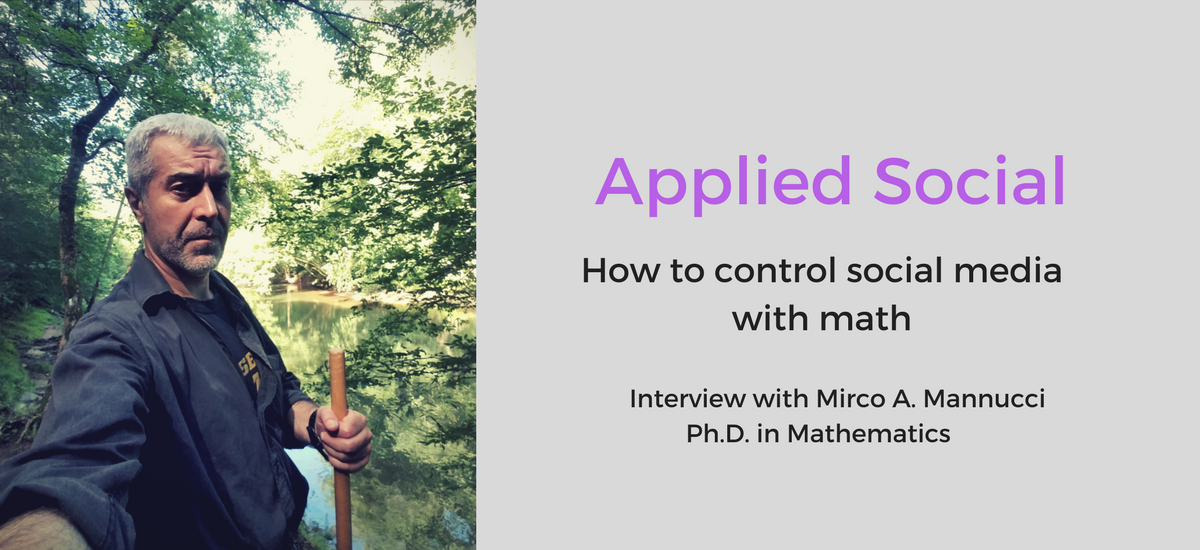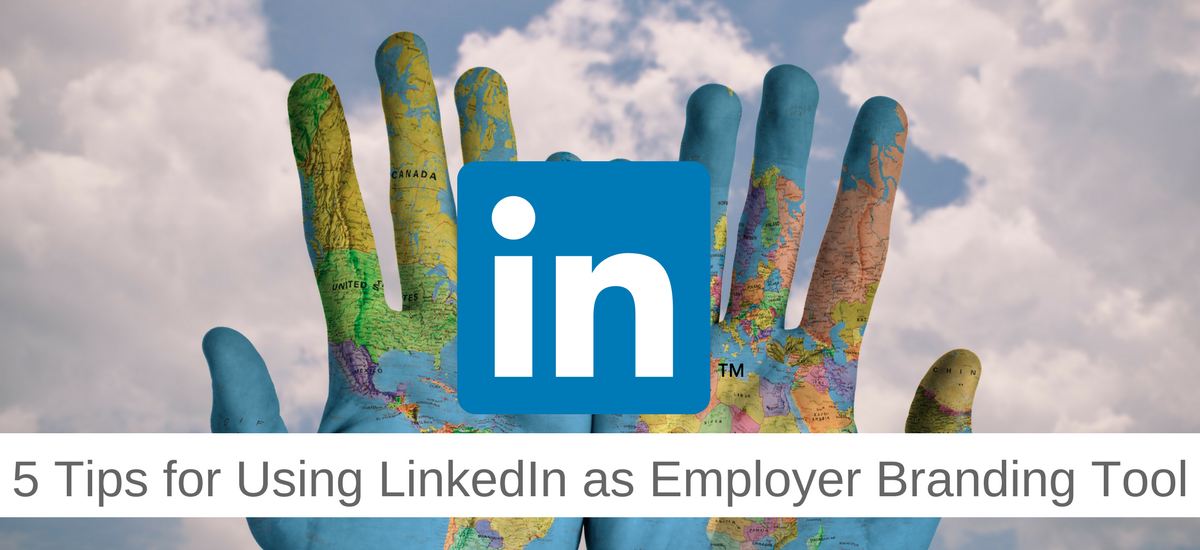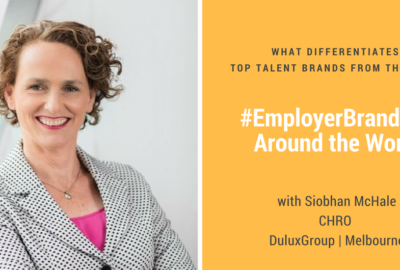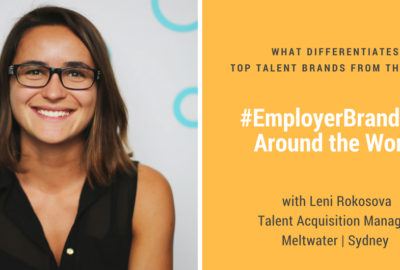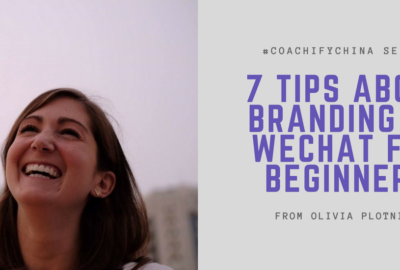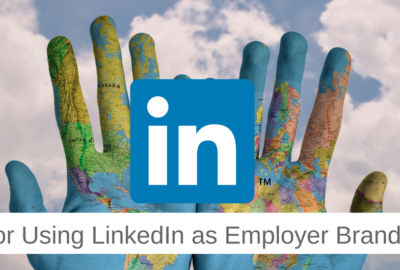Digital Marketing, Digital Trends, Modern Career, Relocation
How to Find a Career in China, Get Featured on Forbes and Use LinkedIn to Its Full Potential.
From the rural Pacific Northwest to the middle of a concrete jungle, Olivia Plotnick has made it her mission to never stop challenging herself to reach new horizons. Making the decision to move to China by herself several years ago she has quickly learned how to build a personal network from scratch, become recognized for her knowledge of marketing and branding in China, get featured in Forbes and grow a WeChat account from 2,000 to 5,500 followers in just 6 months.
Olivia, what is the story behind your move to China?
I started studying Chinese at St. Mary’s High School. It was the first high school in Oregon to offer Chinese program. The summer after my first year of studying we had an opportunity to come China and I was one of the seven students selected. We travelled all around China during the holiday, it was my first trip outside of the States. It was the Summer 2007, and we went to Beijing, Henan, and the southern part of China, Kunming in the Yunnan province. It was so different from anything I had known or been exposed to before. After that experience, I started thinking that this is the path that I wanted to follow. I studied Chinese and business throughout college and I completed my final six months of college in Beijing, at Beijing Language and Culture University. I moved there by myself and enrolled in an intensive language program. The classes were only taught in Chinese and I was the only American in my class, with no other native English speakers. I think I cried a lot (laugh) and I was a little bit miserable for about five months, but by the sixth month I was loving it: I have this distinctive memory of riding in a cab and passing all these incredible buildings in Beijing. The energy from the city was electrifying. I went back to Oregon, graduated and found a job at an international adoption agency. I was helping prospective parents through the first 1 to 2 years of the adoption process. I was also helping to update the organization’s website to drive more traffic and liaising with our Beijing office. While this role was a huge learning opportunity for me, I knew it wasn’t my career path. I really wanted to move back to China and pursue a career in international business.
How did you do it?
The easiest way to be back in China quickly was through a teaching job. To the surprise of my friends and family it only took me couple of weeks to get one. The whole process of getting a visa took around four months. My parents knew I wanted to move back to China. Although it was probably hard for them, they never questioned it. They knew I could do it and I knew I was determined to make it work. I ended up in a city nearby Shanghai. The first time I visited Shanghai in March 2015 I totally fell in love with the city. I said to myself: I must move here. And to think, I didn’t even know what I know now about the city!
How did you find your current job?
I was using LinkedIn, Smart Shanghai, E-China cities. I had quite a few interviews, but nothing really seemed to be the right role for me. I knew I was passionate about and storytelling and how brands design and market products. At that time, I didn’t know marketing and branding were the answer until after I had an interview for a marketing position with a solar energy company. Although it wasn’t the right fit I enjoyed working on several interview projects. It helped me to narrow down my search.
The position I am in now was posted on LinkedIn and I applied for it. I had fifty connections and an outdated profile picture, but I got called in for the interview. Now I have over 1,100 followers and have published several popular posts and articles, several of them receiving over 12,000 views. I was featured in Forbes because of a connection I made on LinkedIn. We began a conversation about getting qualified leads through HubSpot, and we ended up writing an article that was published on Forbes, in just over a week it surpassed 5,000 views.
I know people in my industry are using LinkedIn, but I don’t see people, especially my peers, using it to its full potential. Nowadays building your personal brand is extremely important, it is the biggest thing you will carry with you from job to job. The reality is that my generation will be changing jobs at least a few times throughout their careers. LinkedIn is the platform to build your professional presence online. Twitter and Instagram are important too, but the LinkedIn is the ultimate professional space where people are going to go to search not only for talent, but for thought leadership. How have you contributed, what do you have to say about your industry? Building and interacting with your network is important, and now is the time to utilize LinkedIn to do this . I wrote about in What I learned from LinkedIn’s first Official Meetup in China article.
Can you tell us about your typical day at work?
I work for Brandigo , a global branding and marketing agency, with offices in Shanghai, Boston and Manchester. I’m based in Shanghai as our in-house marketing manager. I develop and carry out our inbound marketing strategy, this means I’m working with our marketing automation software, HubSpot, which helps to attract and track qualified leads. Each day I’m checking how are people interacting with our website, looking at which content is the most read and shared, what problems are people searching for that we can help solve, and what channels are they using? I develop our content strategy, keep our marketing collaterals updated and looking fresh.
What are the skills needed to succeed in marketing and branding in China?
You have to realize that the market here is unlike anything you have seen and experienced before. I cannot tell you how many conversations I have with professionals in this industry who will tell you that no matter what, you must be prepared to throw most of what you know out the window. China is changing incredibly fast, much faster than in the West. I see many international brands coming into China and they have no idea what WeChat is, but they want it. The fact is that marketers need to take a step back and look at the bigger picture. China is massive, each city is like an individual country, and all these cities are very different from each other. A great WeChat will only get you so far, it’s about finding the right way to localize everything. If you can roll with the punches, see 10 steps ahead, listen to what is happening, and be flexible, you can survive in China.
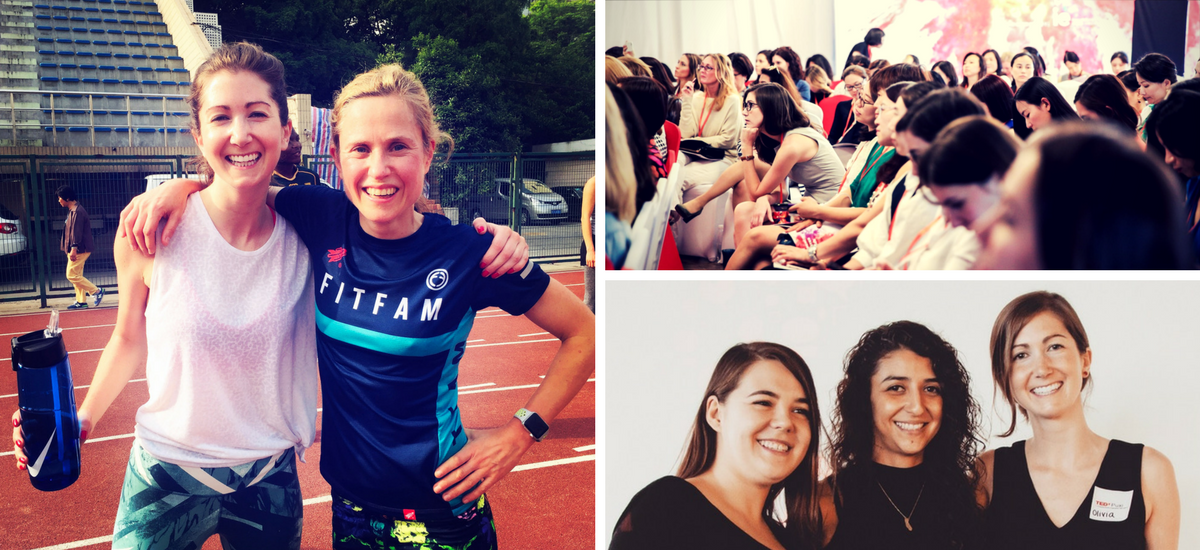
What is your advice for someone who’s just relocating to China?
At the beginning, it seems like a massive life change. And it will be! But you have to be proactive and seek out groups and events that interest you. The unique aspect of being an expat is that you will almost always be able to relate to other expats on some level. You will share this common affinity for adventure and independence. There will be hard days, days when everything seem to be working against you and nothing makes sense. These tough days are amplified by the fact that you are other side of the world from everything you have ever known to be comforting. However, compared to other parts of China, living in Shanghai is easy, because most people speak English, and it is a modern, multi-cultural city. Find your community, find people who share the same values, interests, passions and surround yourself with people and projects which can expand your horizons and keep you grounded.
How did you find your community?
I moved here in August 2016 and didn’t know anyone in the city. I searched on Meetup.com and found Girl Gone International. This was the first community I got involved in and it gave me a gateway to many other friendships and relevant communities. The incredible thing about China is that we have WeChat, and WeChat groups. These groups can have up to 500 people in them, and when they are well managed, like the GGI (Girl Gone International) ones, they can be incredibly useful. After GGI I attended a number of networking events, and have since become actively involved in other groups such as IPWS (International Professional Women’s Society), TedxPuxi, and FitFam. The community that I have grown the most with has been FItFam. I got involved with FitFam – a free fitness community in Shanghai, which started about two years ago. Currently FitFam has 14 locations all over Shanghai with over 2,000 active members, and over 5,500 WeChat followers. I manage the FitFam WeChat account and communication strategies. The FitFam community is so special to me, everyone, foreigners and Chinese, are so supportive and always welcoming. This community has given me so much, especially because I have been able to combine my passion for fitness and healthy living with my passion for marketing and content creation. I truly believe that if I was back home I would not have pushed myself to get involved in so many different organizations, meet so many diverse people or challenged myself explore my passions. In Shanghai, you can meet so many incredible people from backgrounds you never imagined, try new things you didn’t even know existed, and simply get out of your comfort zone. I believe Shanghai gives you the opportunity to become a much stronger, empowered person.
What is the question no one asked you about, and you feel they should?
“What can you do differently?” I made a huge, and hard decision to leave my family and my home to come to another country to work. There are some tough days; it can be lonely, and sometimes nothing makes sense, but the hard work and sacrifice should be for something much bigger. My initial decision 10 years ago to start learning Chinese was because I wanted to do something out of the ordinary. During this past year I have tried to take in every experience, every opportunity that I possibly could. The more people I meet, the more I learn, not only about myself but also about the industry I work in. Today the world we live in is increasingly competitive, and I believe that to make an impact, not only in my own life, but also to impact the lives of others in a positive way, it requires us to seek out opportunities and challenges that that are outside of the norm. This is what I am looking to do.
Thank you, Olivia, we are looking forward our next interview: Everything About Branding.
Picture credit: Olivia Plotnick, Brandigo, VPHOTOS.
Comments are closed


